Cheddar Cheese Overview
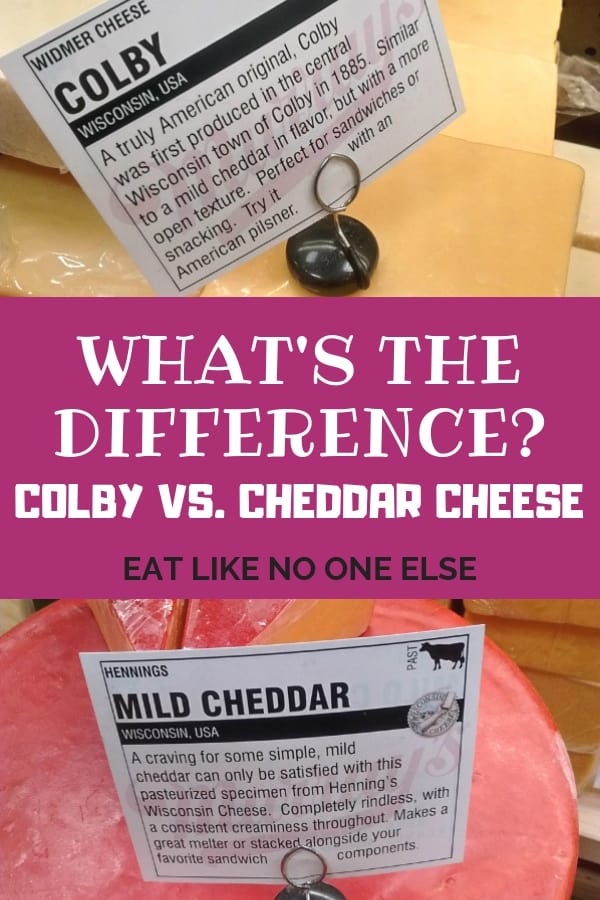
Cheddar cheese, a beloved dairy product, is a type of hard cheese that originated in the English village of Cheddar in the 12th century. Made from cow’s milk, it is known for its rich creamy texture and sharp flavor. Cheddar’s bold flavor and versatility in cooking make it a favorite for traditional dishes and cheese boards. With its distinct taste, cheddar has become a staple in cuisines around the world. Whether enjoyed on its own or incorporated into recipes, Cheddar cheese adds a delightful depth of flavor to any dish.
Cheddar Cheese History And Characteristics
Cheddar cheese has a fascinating history dating back to the 12th century in the English village of Cheddar. It was originally made by local farmers using traditional techniques, and over time, it gained popularity for its distinct taste and texture. Cheddar cheese is known for its crumbly yet creamy texture and its sharp, tangy flavor. It is typically aged for a minimum of 9 months, allowing it to develop a more pronounced flavor. Cheddar cheese is versatile and can be enjoyed on its own, grated over dishes, or melted into recipes for added depth and richness.
Cheddar Cheese Popular Uses And Pairings
Cheddar cheese is a versatile ingredient that can be used in a variety of dishes. Its rich and tangy flavor makes it a perfect choice for grilled cheese sandwiches, cheeseburgers, and macaroni and cheese. It can also be added to soups, salads, and omelets for an extra burst of flavor. Cheddar cheese pairs well with fruits like apples and pears, as well as with savory ingredients like bacon and caramelized onions. It is also a great addition to a cheese platter, served alongside crackers and nuts. Whether melted, shredded, or sliced, cheddar cheese adds a delicious and creamy element to any recipe.
Colby Cheese Introduction
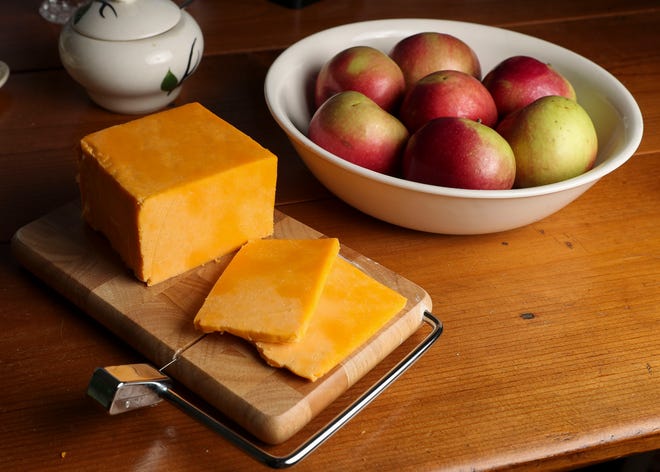
Colby cheese is a popular cheese variety that originated in the United States. It was first created in the late 1800s in Colby, Wisconsin, hence its name. Colby cheese is made from cow’s milk and is known for its mild and creamy flavor. It has a slightly sweet taste and a soft, smooth texture. Colby cheese is often used as a substitute for cheddar cheese due to its similar flavor profile, but it has a milder taste. It is commonly enjoyed on sandwiches, burgers, and in cheese platters.
Colby Cheese Production And Origin
Colby cheese, named after the town of Colby, Wisconsin, where it was first created, is a popular cheese variety with a unique production process. It is made from cow’s milk and follows a similar process to cheddar cheese. The milk is heated, curdled using rennet, and then cut into small pieces. The curds are then pressed together to remove excess moisture, resulting in a dense texture. Colby cheese is typically aged for a shorter period compared to cheddar, resulting in a milder flavor. Its origin in Colby, Wisconsin, contributes to its popularity and recognition in the cheese world.
Colby Cheese Flavor And Texture
Colby cheese has a mild and creamy flavor, making it a popular choice for those who prefer a subtle cheese experience. Its flavor is sweeter and less acidic compared to young cheddar cheese. The texture of Colby cheese is smooth and slightly elastic, giving it a pleasant mouthfeel. It is softer than cheddar cheese, making it easier to slice or shred. The combination of its mild flavor and smooth texture makes Colby cheese a versatile option for various culinary applications, including sandwiches, salads, and cheese platters.
Cheddar Cheese Production Process
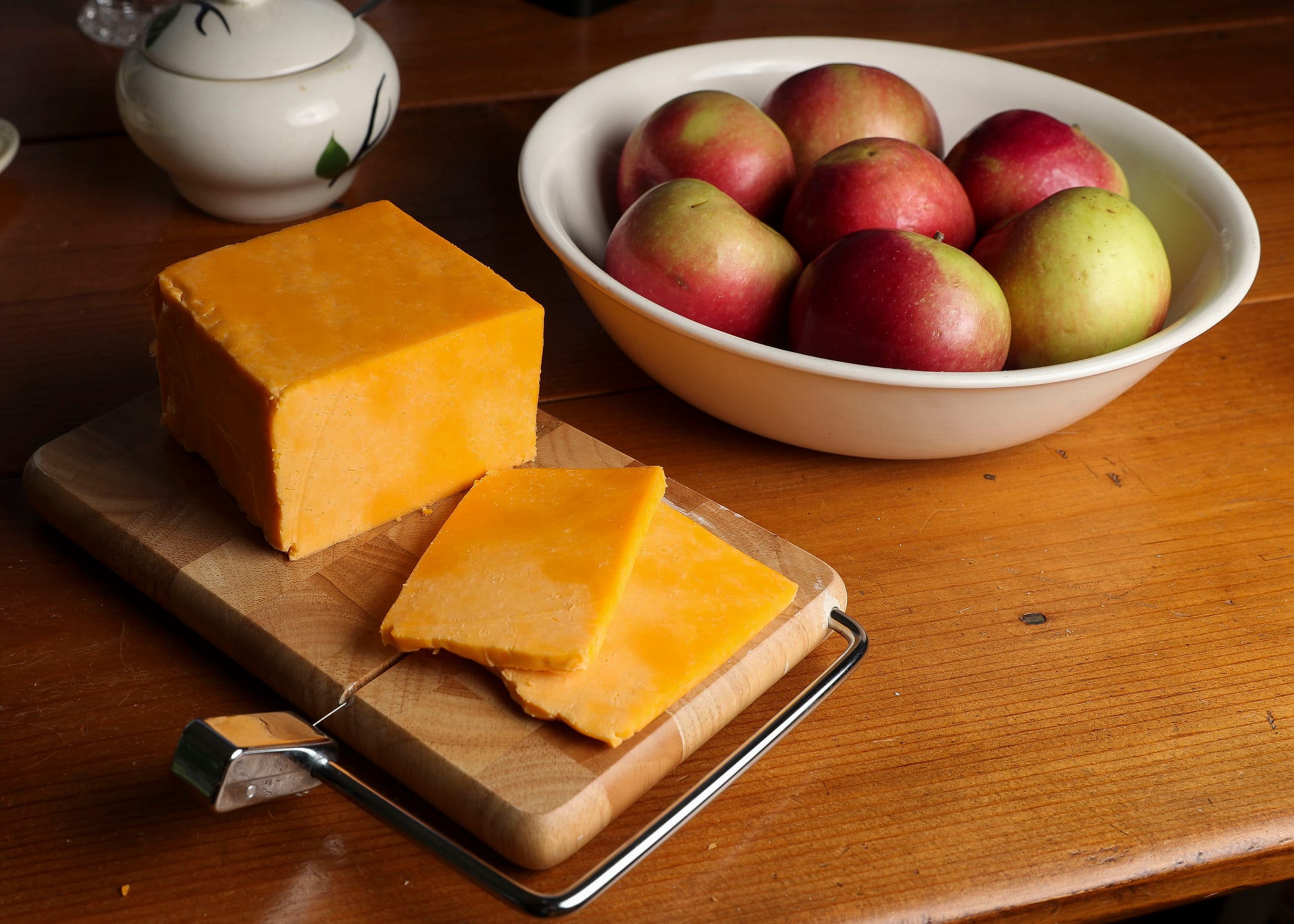
The production process of cheddar cheese follows a traditional method that combines craftsmanship and science. It begins by heating and acidifying milk, usually from cows, to form curds. The curds are then cut to release whey and allow further drainage. The curds are cheddarized, where they are stacked and flipped to expel more whey and develop flavor. After cheddarizing, the curds are milled and salted before being pressed into molds to create their characteristic shape. The cheese is then aged for varying lengths of time, during which it develops its distinctive flavor and texture.
Cheddar Cheese Aging And Varieties
Cheddar cheese is known for its versatility and wide range of flavors, which develop during the aging process. The aging of cheddar cheese can range from a few months to several years, resulting in different varieties. Mild cheddar is aged for a shorter period and has a smooth and creamy texture, with a milder flavor. Medium cheddar is aged for a bit longer and has a slightly sharper taste. Sharp cheddar is aged even longer, resulting in a stronger and tangier flavor. Extra sharp cheddar is aged for the longest period, boasting a bold and intense flavor. These variations in aging give cheddar cheese a wide range of options to suit different tastes and culinary preferences.
Cheddar Cheese Nutritional Information
Cheddar cheese is a rich source of essential nutrients. A 1-cup serving of shredded cheddar cheese contains approximately 449.7 calories, with 73.8% of those calories coming from fat. It provides 36.9g of protein, making it a good option for those looking to increase their protein intake. Cheddar cheese is also a good source of calcium, with 113.0mg per serving. However, it is important to consume cheddar cheese in moderation, as it is high in saturated fat and sodium.
Colby Cheese Production Process
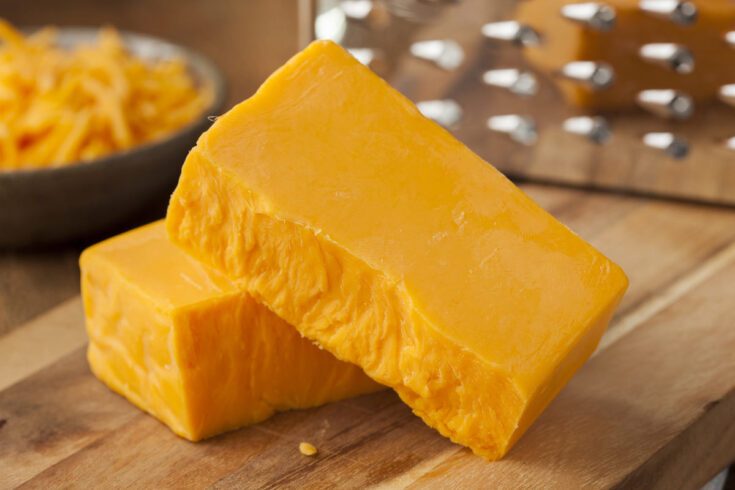
Colby cheese is produced using a similar process to cheddar cheese. The milk is first pasteurized and then heated to a specific temperature. Once heated, an enzyme called rennet is added to coagulate the milk and form curds. The curds are then cut into small pieces and stirred to release whey. The curds are then pressed into molds to remove more whey. After pressing, the cheese is allowed to age for a short period of time, usually around two to three months. This aging process gives Colby cheese its characteristic smooth texture and mild flavor.
Colby Cheese Aging And Varieties
Colby cheese, like cheddar cheese, also undergoes an aging process. However, compared to cheddar, Colby cheese has a shorter aging period. It is typically aged for around two to three months, allowing it to develop a smooth texture and mild flavor.
In terms of varieties, Colby cheese is mainly produced in two forms: Colby and Colby-Jack. Traditional Colby cheese is a creamy, ivory-colored cheese with a mild and slightly sweet flavor. Colby-Jack, on the other hand, is a combination of Colby and Monterey Jack cheeses, giving it a slightly tangy and mellow taste. Both varieties make for delicious additions to sandwiches, burgers, and cheese platters.
Colby Cheese Nutritional Information
Colby cheese is a delicious choice that also provides some nutritional benefits. In a typical serving size of 1 ounce (28 grams), Colby cheese contains approximately 110 calories. It is a good source of protein, providing about 7 grams per serving. Colby cheese also contains essential minerals such as calcium, phosphorus, and selenium, which support bone health and contribute to overall wellness. However, it is important to consume Colby cheese in moderation due to its higher fat and sodium content. Including Colby cheese as part of a balanced diet can add flavor and nutritional value to your meals.
Cheddar Vs Colby: Flavor And Texture Comparison
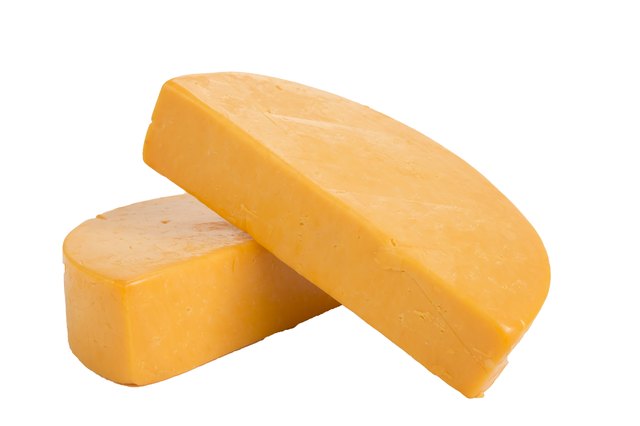
When comparing the flavor and texture of Cheddar and Colby cheese, there are noticeable differences. Cheddar cheese has a stronger, more robust flavor with a slight tanginess and nutty undertones. It has a firm and dense texture that becomes crumbly as it ages. On the other hand, Colby cheese has a milder, sweeter flavor with a lactic and buttery finish. It has a softer and more open texture, which makes it slightly more meltable than Cheddar. These variations in flavor and texture make both cheeses versatile options for different dishes and culinary creations.
Differences In Flavor Profiles
Cheddar and Colby cheese have distinct flavor profiles that set them apart. Cheddar cheese is known for its strong, robust flavor with a slight tanginess and nutty undertones. It has a bold and rich taste that lingers on the palate. On the other hand, Colby cheese has a milder and sweeter flavor, with a lactic and buttery finish. Its taste is more subtle and delicate compared to cheddar. These differences in flavor make both cheeses unique, catering to different preferences and culinary applications. Whether you prefer the boldness of cheddar or the gentle sweetness of Colby, there is a cheese for every palate.
Variations In Texture And Melting Properties
When it comes to texture and melting properties, Cheddar and Colby cheese have distinct characteristics. Cheddar cheese has a dense and crumbly texture, with a smooth and creamy mouthfeel when melted. It melts evenly and is often used in dishes like grilled cheese sandwiches and macaroni and cheese, where its smooth melting qualities enhance the dish. On the other hand, Colby cheese has a softer and more elastic texture, making it ideal for melting. It melts beautifully and is often used in dishes like nachos and quesadillas, where its soft and stringy texture adds to the overall experience. Whether you prefer the crumbly consistency of Cheddar or the elastic melt of Colby, both cheeses bring their unique properties to the table.
Conclusion
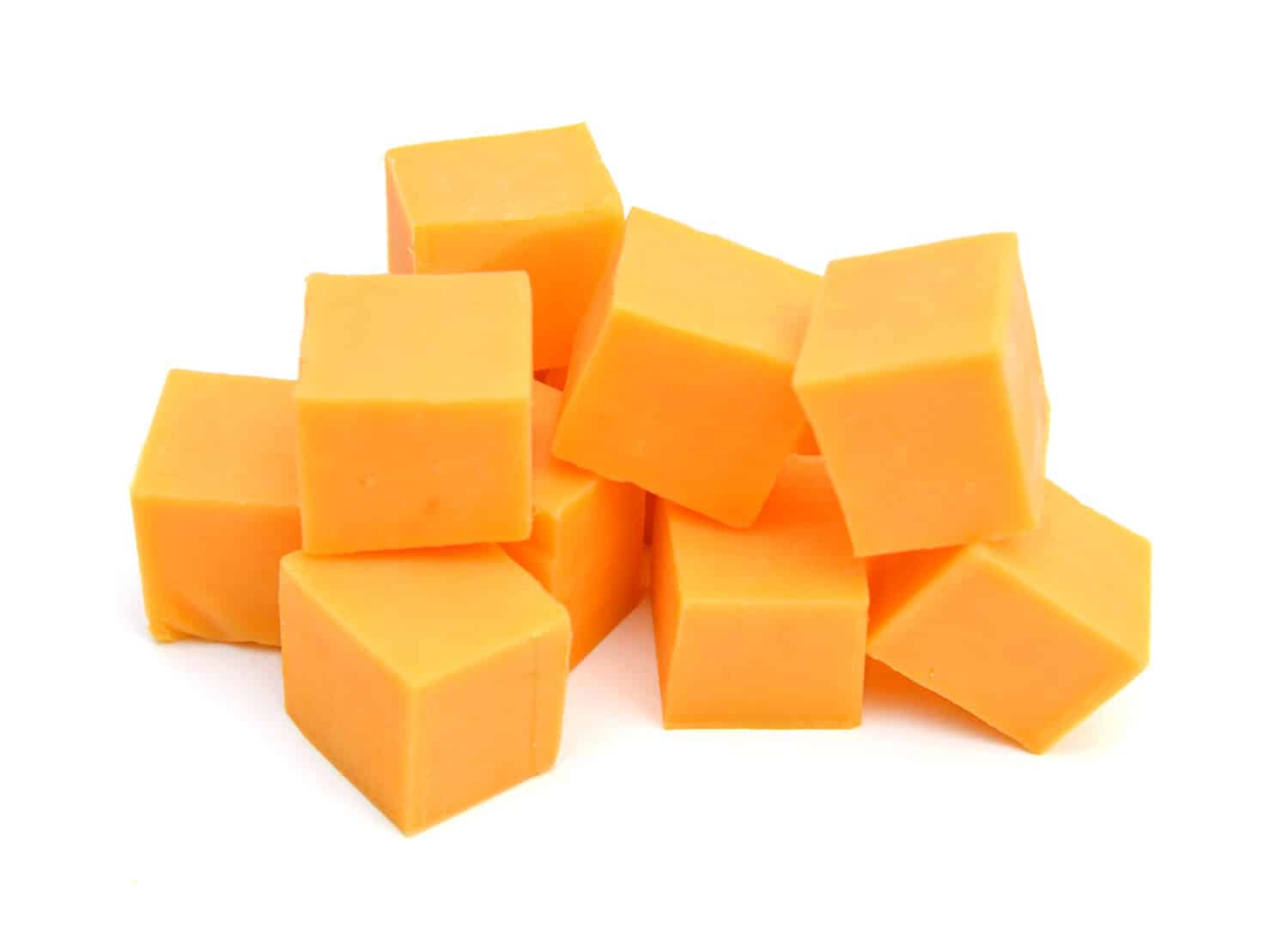
In conclusion, the showdown between Cheddar and Colby cheese reveals the unique qualities each brings to the table. Cheddar cheese impresses with its dense texture and crumbly consistency, making it perfect for dishes like grilled cheese sandwiches and macaroni and cheese. On the other hand, Colby cheese offers a softer and more elastic texture, ideal for melting and adding a stringy, gooey element to dishes like nachos and quesadillas. Whether you prefer the smooth melt of Cheddar or the elastic texture of Colby, both cheeses showcase their distinct flavors and textures in various culinary creations.
Key Takeaways From Cheddar Vs Colby Comparison
The comparison of Cheddar and Colby cheese highlights the unique characteristics and flavors of each variety. Cheddar cheese offers a dense and crumbly texture, perfect for dishes like grilled cheese sandwiches and macaroni and cheese. On the other hand, Colby cheese has a softer and more elastic texture, making it ideal for melting and adding a gooey element to dishes like nachos and quesadillas. The choice between Cheddar and Colby ultimately depends on personal preference and the desired outcome of the dish. Both cheeses bring distinct flavors and textures to the table, enhancing various culinary creations.
Choosing The Right Cheese For Different Dishes
When it comes to choosing the right cheese for different dishes, understanding the flavor and texture profiles of Cheddar and Colby Jack can help guide your decision. Cheddar, with its rich and robust flavor, is perfect for dishes like grilled cheese sandwiches and macaroni and cheese, where you want a bold cheese flavor to shine through. On the other hand, the mild and creamy character of Colby Jack makes it an ideal choice for melting and adding a gooey element to dishes like nachos and quesadillas. Both cheeses bring their own unique qualities to various culinary creations, so consider your desired outcome and personal taste preferences when selecting the perfect cheese for your dish.
FAQ About Cheddar Vs Colby: A Cheese Showdown
Q: What is the main difference between Cheddar and Colby cheese?
A: The main difference lies in the aging process. Cheddar cheese is aged, providing a sharp flavor and crumbly texture, while Colby cheese is young and has a milder taste with a more elastic texture.
Q: Can Cheddar and Colby cheese be used interchangeably in recipes?
A: While both cheeses can be used interchangeably in some recipes, their distinct flavors and textures might affect the final outcome. It’s best to use Cheddar for stronger flavors and Colby for milder ones.
Q: Which cheese is better for melting – Cheddar or Colby?
A: Cheddar cheese is often preferred for melting due to its higher fat content, which results in a creamier texture when melted. Colby can also be melted but might not have the same smooth consistency as Cheddar.
Q: Are there variations of Cheddar and Colby cheese available?
A: Yes, there are various variations of Cheddar like sharp Cheddar, white Cheddar, and aged Cheddar. Colby cheese also has its variations like Colby-Jack, a mix of Colby and Monterey Jack cheeses.
Q: Can lactose-intolerant individuals consume Cheddar and Colby cheese?
A: Both Cheddar and Colby cheese contain low levels of lactose, making them suitable for some lactose-intolerant individuals. However, it’s best to consult a healthcare provider for personalized advice.

Salsas by Karoll’s Catering is a vibrant and innovative Canadian fusion family restaurant that welcomes you to indulge in a delightful culinary experience. Every Sunday, from 11 am to 2 pm, we invite you for a delicious brunch that will tantalize your taste buds. Whether you prefer dining in or taking out, we ensure that our delectable dishes are available to savour at your convenience. In addition to our enticing Sunday brunch, we host a lively happy hour every Thursday, Friday, and Saturday. During this time, you can enjoy discounted food items, get $2.50 off on beer, and sip on refreshing $5 margaritas. It’s the perfect opportunity to unwind and relish in the flavours of our Canadian fusion cuisine.